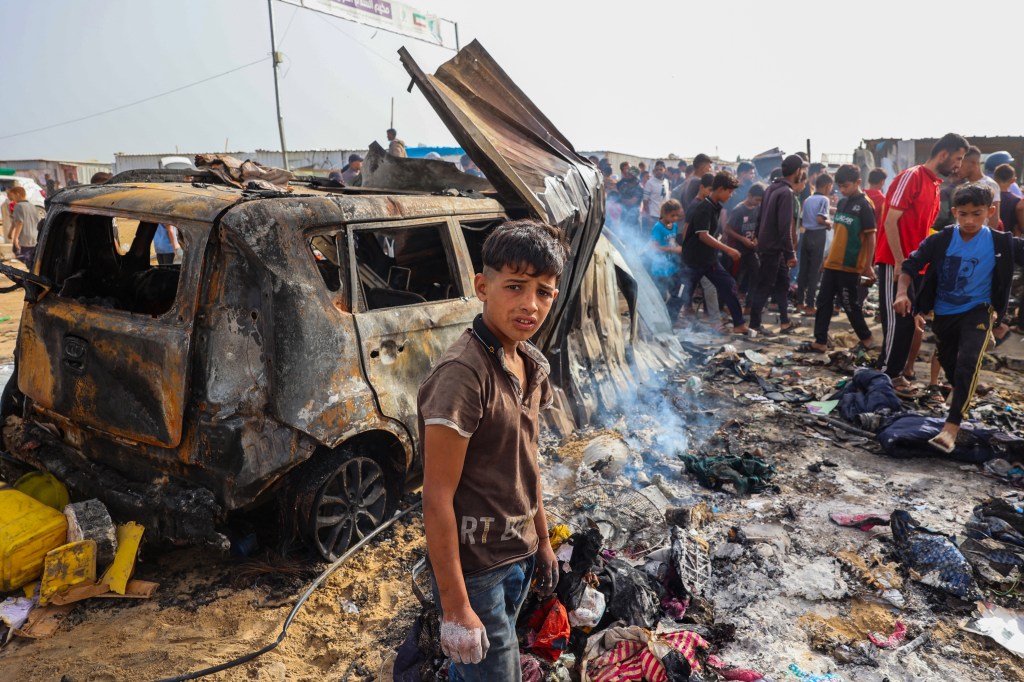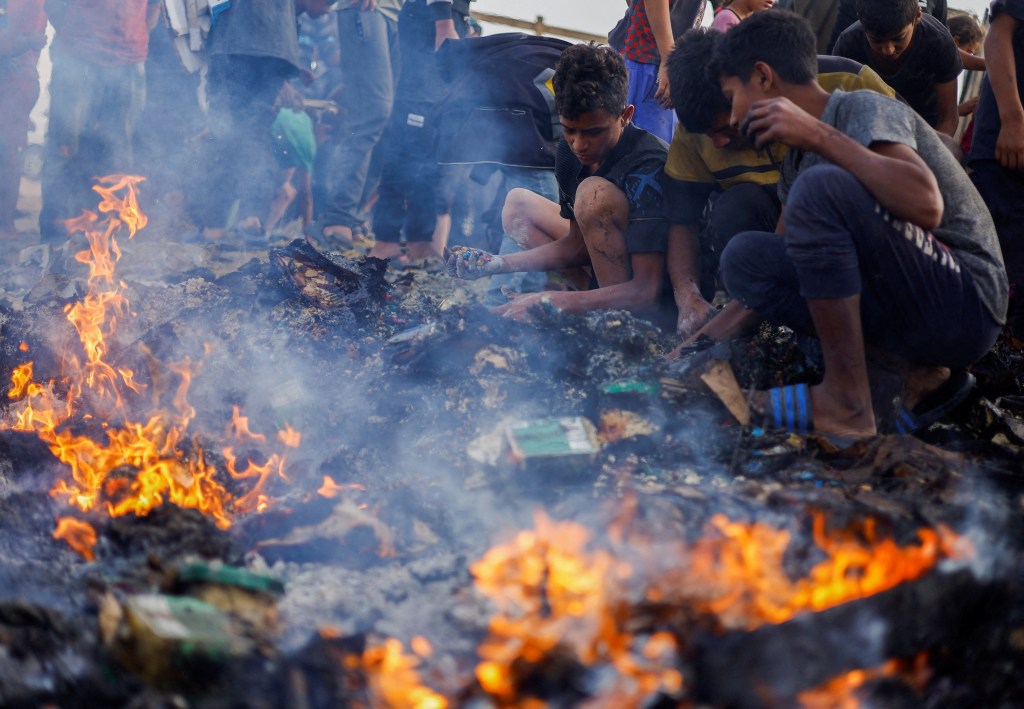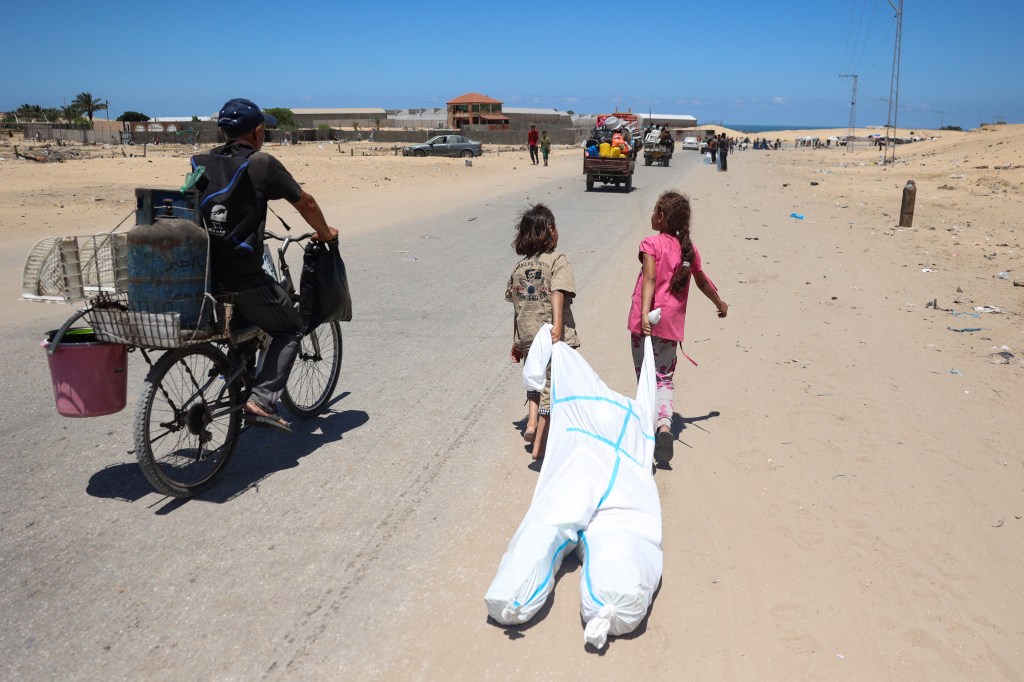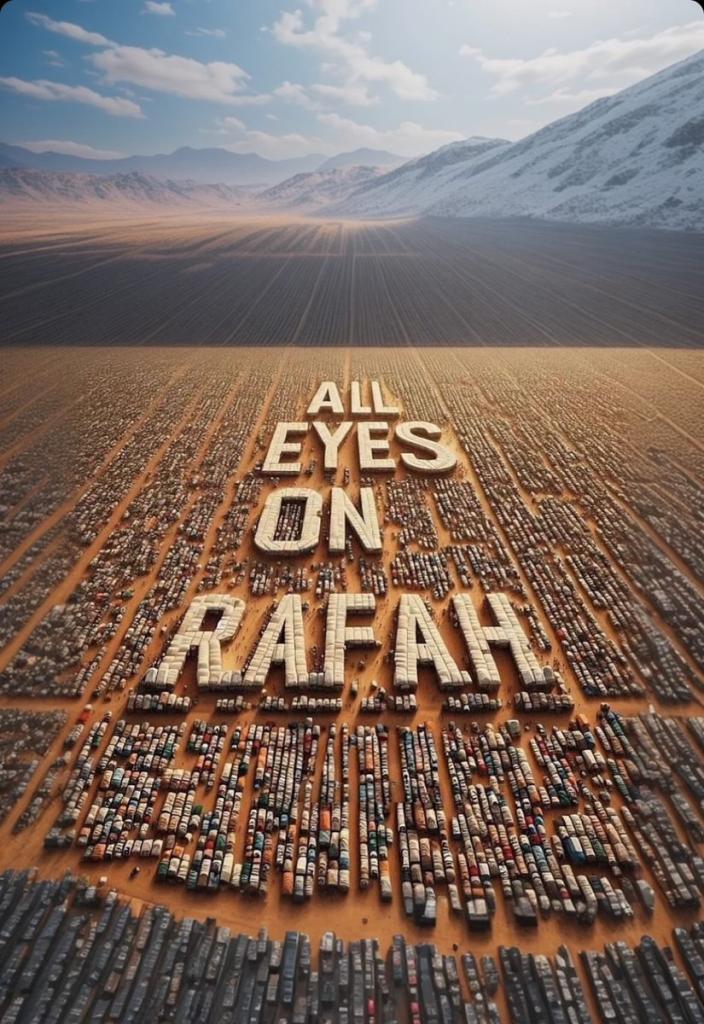‘Vapid’: ‘All Eyes on Rafah’ viral post ripped for fake AI images of Gaza
A viral AI-generated image of Rafah calling on the world to witness Israel’s advancement in the Gazan city and shared by millions, including Noble Peace Prize winner Malala Yousafzai and model Gigi Hadid, has garnered backlash for offering an unrealistic, sanitized view of the situation.
The fake image, uploaded earlier this week by pro-Palestinian activists, features rows and neatly organized tents in the desert stretching off towards snow-capped mountains, with several tents in the center spelling out “All Eyes on Rafah.”
While the AI-generated picture has been shared tens of millions of times on social media, it ultimately fails to capture the reality of a city and its people caught between Israel’s military offensive and Hamas terrorists operating in residential areas.
Deborah Brown, a senior researcher and advocate on digital rights for the Human Rights Watch group, said it was concerning how much traction the fake photo was getting as opposed to real images of war-torn Rafah.
“People have been posting really graphic and disturbing content to raise awareness and that gets censored while a piece of synthetic media goes viral, it is disturbing,” Brown told the Los Angeles Times.
Many on social media slammed those who shared the fake picture — including“Bridgerton” actress Nicola Coughlan, Noble Peace Prize winner Malala Yousafzai and model sisters Gigi and Bella Hadid — accusing them of performative activism by sharing an “aesthetically pleasing” picture rather than facing the harsh reality.
“‘All eyes on Rafah, but here’s an ai generated photo so your eyes don’t actually need to be on it,” one Twitter user wrote.
Another wrote, “When did Gaza ever have snow mountains?!”
The post has also been compared to the black squares people posted on social media during the Black Lives Matter protests, which had also been criticized for failing to show the realities of the racial disparities in America in exchange for a simple, easy-to-produce image.
The fake Rafah image has been ultimately slammed as the latest piece of “slacktivism,” a phrase coined to describe those looking to support a cause through social media with minimal effort involved.
Josh Kaplan, of the Jewish Chronicle, slammed the “All Eyes on Rafah” trend as yet another such trend that the masses take part in without ever going further.
“What does sharing an AI image that looks nothing like Gaza actually do?” Kaplan asked.
“The All Eyes on Rafah post is another vapid, lazy way to say ‘I care,’ not ‘I care about bringing the conflict to an end with as little human suffering as possible,’ not even ‘I care about all civilians killed,'” Kaplan wrote. “It says nothing productive.”
“All Eyes on Rafah” has become a rallying cry for anti-Israel protesters after Rik Peeperkorn, who leads the World Health Organization’s Gaza office, used the phrase in February as he warned of the IDF’s looming operation in the southern city, which houses more than one million refugees.
The slogan and image erupted across social media following an Israeli airstrike on Sunday near a refugee camp, which was followed by a large blaze that killed 45 people and wounded some 200 others.
Yet the AI-generated image showed none of the aftermath captured by residents and journalists on the field, with the real images showing the charred encampment, injured civilians and piles of body bags being hauled away.
On Instagram, the “All Eyes on Rafah” graphic was not labeled as an AI-generated image and allowed to flourish while more than 1,000 images of the grim reality in Gaza have been repeatedly censored on the platform, according to a Human Rights Watch’s report last December.
The 51-page report, titled “Meta’s Broken Promises: Systemic Censorship of Palestine Content on Instagram and Facebook,” alleged that the company had taken down 1,050 posts on its platforms uploaded by Palestinian activists and their supporters.



















